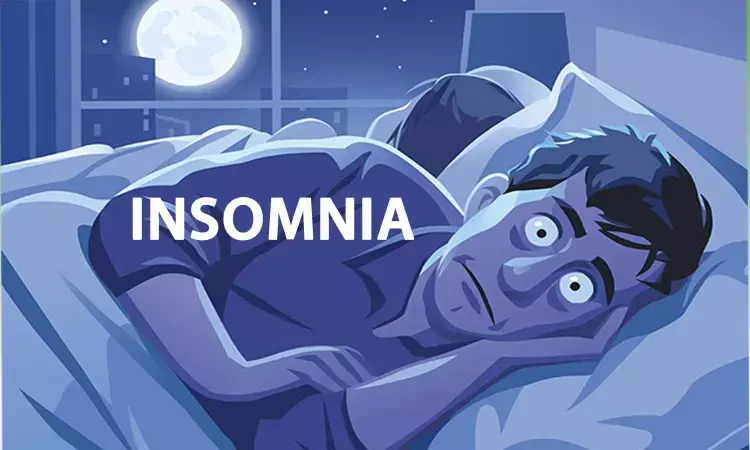- Home
- Medical news & Guidelines
- Anesthesiology
- Cardiology and CTVS
- Critical Care
- Dentistry
- Dermatology
- Diabetes and Endocrinology
- ENT
- Gastroenterology
- Medicine
- Nephrology
- Neurology
- Obstretics-Gynaecology
- Oncology
- Ophthalmology
- Orthopaedics
- Pediatrics-Neonatology
- Psychiatry
- Pulmonology
- Radiology
- Surgery
- Urology
- Laboratory Medicine
- Diet
- Nursing
- Paramedical
- Physiotherapy
- Health news
- Fact Check
- Bone Health Fact Check
- Brain Health Fact Check
- Cancer Related Fact Check
- Child Care Fact Check
- Dental and oral health fact check
- Diabetes and metabolic health fact check
- Diet and Nutrition Fact Check
- Eye and ENT Care Fact Check
- Fitness fact check
- Gut health fact check
- Heart health fact check
- Kidney health fact check
- Medical education fact check
- Men's health fact check
- Respiratory fact check
- Skin and hair care fact check
- Vaccine and Immunization fact check
- Women's health fact check
- AYUSH
- State News
- Andaman and Nicobar Islands
- Andhra Pradesh
- Arunachal Pradesh
- Assam
- Bihar
- Chandigarh
- Chattisgarh
- Dadra and Nagar Haveli
- Daman and Diu
- Delhi
- Goa
- Gujarat
- Haryana
- Himachal Pradesh
- Jammu & Kashmir
- Jharkhand
- Karnataka
- Kerala
- Ladakh
- Lakshadweep
- Madhya Pradesh
- Maharashtra
- Manipur
- Meghalaya
- Mizoram
- Nagaland
- Odisha
- Puducherry
- Punjab
- Rajasthan
- Sikkim
- Tamil Nadu
- Telangana
- Tripura
- Uttar Pradesh
- Uttrakhand
- West Bengal
- Medical Education
- Industry
Cognitive behavioral therapy improves sleep among young drinkers, reveals study

More than half of young adults at risk for alcohol-related harm report symptoms of insomnia.Cognitive behavioral therapy (CBT) is one of the first-line treatments for insomnia, but it's never been tested on young adults who are actively drinking.
Researchers from the University of Missouri School of Medicine conducted a pilot study to evaluate CBT's effect on young adult binge drinkers with insomnia to determine if this treatment can improve their sleep and potentially affect alcohol use outcomes. The study has been published in the journal sleep.
"The potential for insomnia treatment to influence alcohol-related consequences has significant implications for the prevention and treatment of alcohol use among young adults," said Mary Beth Miller, PhD, assistant professor of clinical psychiatry at the MU School of Medicine. "Given the stigma associated with mental health issues and addiction, it's crucial to identify other forms of treatment that either influence alcohol outcomes or open the door to alcohol-related treatment."
Miller tested CBT in a pilot study of 56 people between 18 and 30 years old who reported at least one binge-drinking episode in the past month. Binge drinking was defined as four or more drinks in one occasion. Participants were randomly assigned to either five weekly sessions of CBT -- a behavioral therapy program that focuses on changing patterns of thinking and behavior -- or a single session on sleep hygiene, which focuses on creating optimal sleeping conditions and establishing a bedtime routine. The CBT session topics included sleep hygiene, sleep restriction, relaxation techniques, behavioral experiments, insomnia prevention discussions and sleep diary use. All participants wore wrist devices to objectively measure sleep and completed subjective daily sleep and drinking surveys.
Results showed CBT participants reported a 56% reduction in insomnia severity, compared to a 32% reduction in symptoms for those who completed only the sleep hygiene session. The CBT participants also showed moderate improvement in objectively assessed sleep efficiency after treatment compared to the sleep hygiene participants. Both groups reduced their drinks per week and alcohol-related consequences after treatment. However, CBT participants reported greater improvements in insomnia, which in turn were associated with reductions in alcohol-related problems.
"The results of this study indicate that insomnia treatment may improve alcohol-related problems, and therefore, may be an ideal first step toward treatment among binge-drinking young adults with insomnia," Miller said.
Miller believes the data collected in this study warrants a larger sample size study looking at alcohol-related problems as a primary outcome. She plans to determine if insomnia treatment improves executive function and the ability to regulate emotions, which in turn might decrease risk for alcohol-related problems.
Hina Zahid Joined Medical Dialogue in 2017 with a passion to work as a Reporter. She coordinates with various national and international journals and association and covers all the stories related to Medical guidelines, Medical Journals, rare medical surgeries as well as all the updates in the medical field. Email: editorial@medicaldialogues.in. Contact no. 011-43720751
Dr Kamal Kant Kohli-MBBS, DTCD- a chest specialist with more than 30 years of practice and a flair for writing clinical articles, Dr Kamal Kant Kohli joined Medical Dialogues as a Chief Editor of Medical News. Besides writing articles, as an editor, he proofreads and verifies all the medical content published on Medical Dialogues including those coming from journals, studies,medical conferences,guidelines etc. Email: drkohli@medicaldialogues.in. Contact no. 011-43720751


